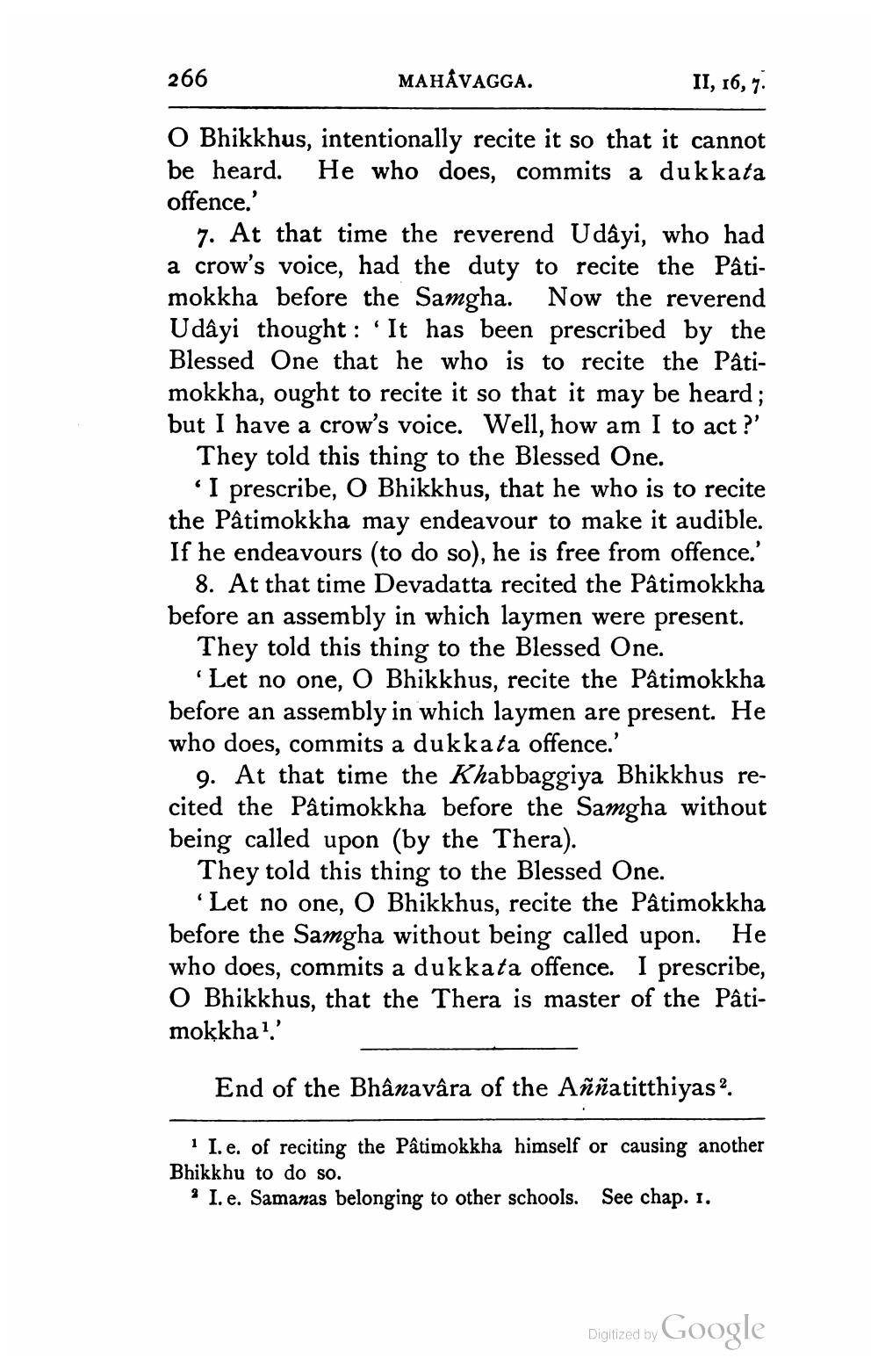________________
266
MAHÅVAGGA.
II, 16, 7:
O Bhikkhus, intentionally recite it so that it cannot be heard. He who does, commits a dukkata offence.
7. At that time the reverend U dâyi, who had a crow's voice, had the duty to recite the Pâtimokkha before the Samgha. Now the reverend Udâyi thought : ‘It has been prescribed by the Blessed One that he who is to recite the Pâtimokkha, ought to recite it so that it may be heard; but I have a crow's voice. Well, how am I to act ?'
They told this thing to the Blessed One.
I prescribe, O Bhikkhus, that he who is to recite the Pâtimokkha may endeavour to make it audible. If he endeavours (to do so), he is free from offence.'
8. At that time Devadatta recited the Pâtimokkha before an assembly in which laymen were present.
They told this thing to the Blessed One.
Let no one, O Bhikkhus, recite the Pâtimokkha before an assembly in which laymen are present. He who does, commits a dukkata offence.
9. At that time the Khabbaggiya Bhikkhus recited the Pâtimokkha before the Samgha without being called upon (by the Thera).
They told this thing to the Blessed One.
'Let no one, O Bhikkhus, recite the Pâtimokkha before the Samgha without being called upon. He who does, commits a dukkata offence. I prescribe, O Bhikkhus, that the Thera is master of the Pâtimokkhal.'
End of the Bhânavâra of the Aññatitthiyas .
* I. e. of reciting the Pâtimokkha himself or causing another Bhikkhu to do so.
* I. e. Samanas belonging to other schools. See chap. 1.
Digitized by Google




